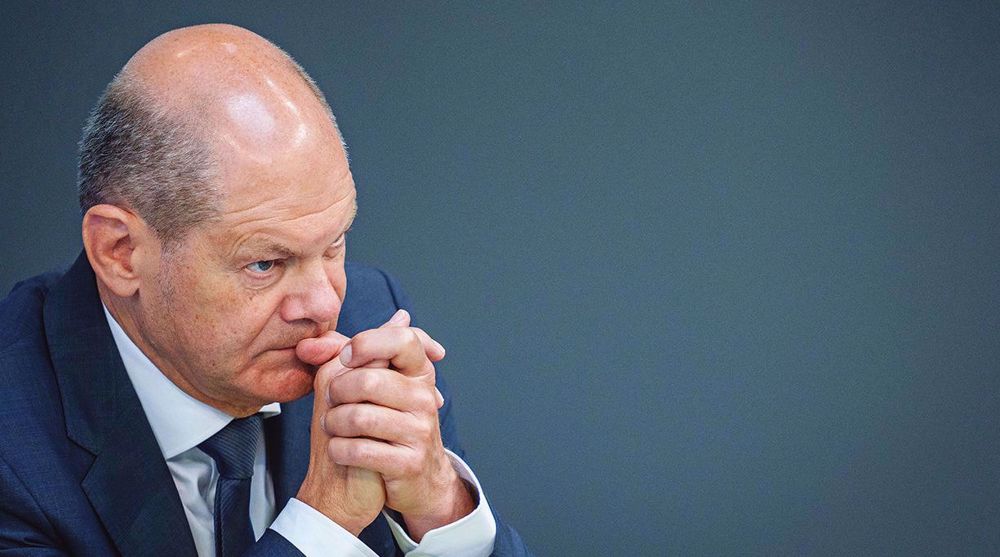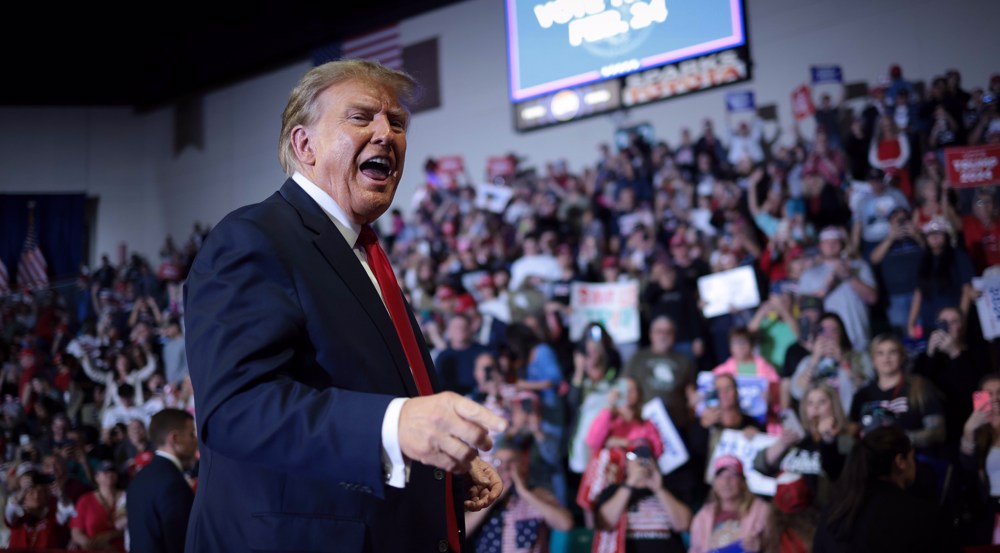Trump’s NATO threats send shivers down Europe’s spine, stirs new nuclear debate in Germany
Threats by US presidential hopeful Donald Trump against those NATO member states that do not meet the US-led alliance’s defense spending have sent shiver down Europe’s spine and sparked a new nuclear debate in Germany.
Although NATO-skeptic Trump still has a long and bumpy road ahead due to controversial decisions he made during his 4-year term in the White House, the looming prospect of his winning a second term is serving as food for thought in Europe.
Late last week, he repeated a threat made during his first term in office, saying the US support for NATO was reliant on other members spending at least two percent of the GDP on their military sectors.
Trump also warned he would leave unprotected NATO member states that did not meet its minimum defense spending threshold and that he would even give Russia the green light to attack them.
The 77-year-old isolationist front-runner, who is most likely to be the Republican Party’s candidate for president, claimed at a rally in South Carolina on February 10 that at a meeting with NATO leaders, “a big country” asked him, “Well sir if we don’t pay, and we’re attacked by Russia – will you protect us?”
“You didn’t pay? You’re delinquent? … No, I would not protect you. In fact, I would encourage them to do whatever the hell they want. You gotta pay. You gotta pay your bills,” Trump said.
His remarks not only drew rebuke from US President Joe Biden and NATO Secretary-General Jens Stoltenberg, but prompted German leaders to seriously think about the European country’s nuclear capability at a time nuclear-armed Russia been involved in a war with Ukraine for two years.
Katarina Barley, the lead candidate for German Chancellor Olaf Scholz’s Social Democrats at the European Parliament elections, said on Tuesday the nuclear arms “issue” might need to be discussed.
Her speculative words have triggered a debate on the ultimate deterrent in Germany, where anti-nuclear and pacifist politics are still deeply rooted in its society that rose from the ashes following the country’s defeat in the Second World War.
In December, Joschka Fischer, a former foreign minister from the Greens, called for a joint European deterrent.
“Should the Federal Republic (of Germany) have nuclear weapons? No. Should Europe? Yes,” said Fischer, whose party has had close ties to the anti-nuclear movement since its founding.
Senior figures within the German government have also considered the idea.
Christian Lindner, who serves as Germany’s finance minister and the leader of Free Democratic Party, said the transformation of the global security order means France and Britain – as Europe’s two nuclear powers – may have a far greater role to play if they are prepared to step up.
“The strategic nuclear forces of France and Great Britain are already making a contribution to the security of our alliance. The French president, Emmanuel Macron, has made various offers of cooperation. We should understand Donald Trump’s recent statements as a call to further rethink this element of European security under the umbrella of NATO,” he said in an article for the Frankfurter Allgemeine Zeitung newspaper.
“Under what political and financial conditions would Paris and London be ready to maintain or expand their own strategic capabilities for collective security? And vice versa, what contribution are we (Germany) willing to make?” Lindner asked.
During the decades after the Second World War, successive German governments found that being a member state in a US-led military alliance was quite adequate for protecting the country against any external threat.
But now that Trump is on the horizon and NATO protection seems to become shaky once he wins a second term, a collective European deterrent appears quite reasonable.
Markus Kaim, researcher at the German Institute for International and Security Affairs (SWP), said, “The European Union would have the money and the know-how, but as long as there is no 'United States of Europe', the model cannot work.”
This is not an easy task, however, he says. “Who would have the codes for launching a European bomb, the head of the Commission in Brussels or one or all of the 27 capitals?”
Lydia Wachs, a researcher on international relations at Stockholm University, says a joint deterrent “requires a massive integration step by the EU, which we are still very far away from.”

‘Iran’s chemical warfare victims living proof of hollowness of West’s human rights claims’

Pro-Palestine activists facing deportation decry German state repression

Germany set to deport four foreign pro-Palestine protesters
China raises retaliatory tariffs on US goods to 125%
Reaching agreement ‘possible’ if US ends intimidation, threats: Iran’s deputy FM
‘Iran’s chemical warfare victims living proof of hollowness of West’s human rights claims’
China's oil imports from Iran surge despite US sanctions: Report
Official: Iran has surpassed West's 'arbitrary' redlines on nuclear tech
Mostly women, children killed as Israel expands Gaza onslaught
VIDEO | Press TV's news headlines
Trump policy protest erupts outside US Congress








 This makes it easy to access the Press TV website
This makes it easy to access the Press TV website